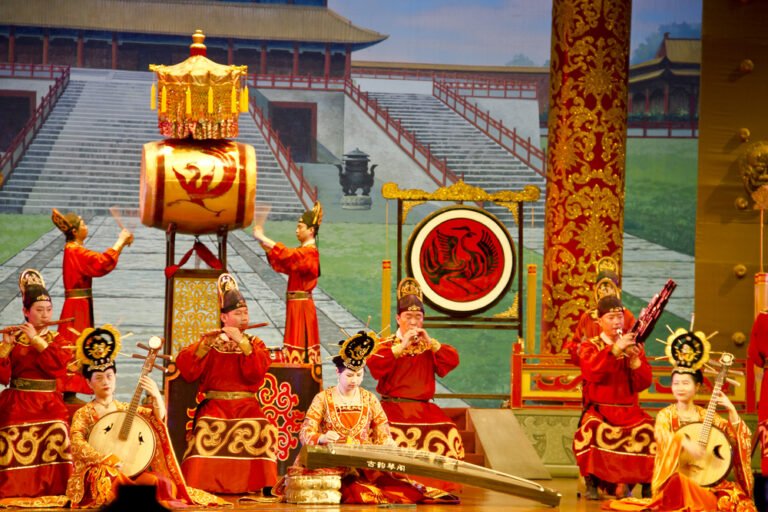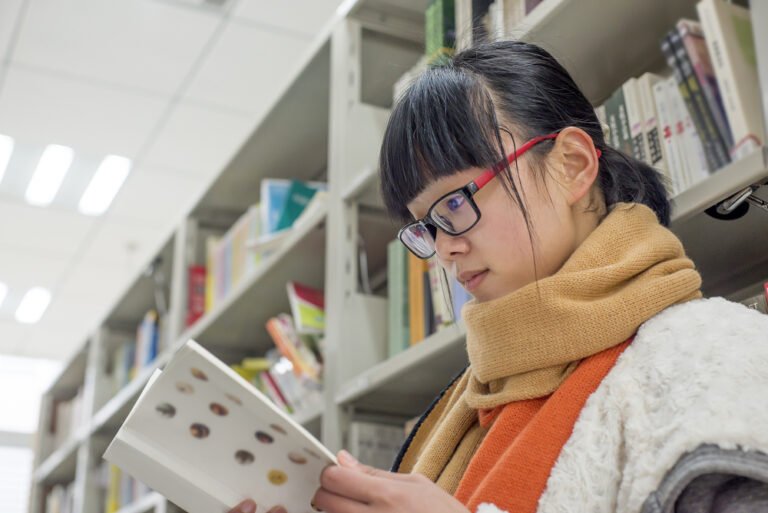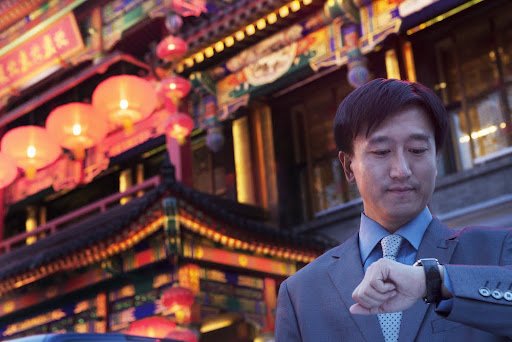Exploring Chinese Literature: A Language Learner’s Guide

Are those textbooks starting to feel heavier than a terracotta warrior…?
Okay, that might be a bit dramatic. But you know the feeling — those moments when your Chinese learning hits a wall. The grammar explanations make your head spin, the vocabulary lists seem endless, and the thought of another character worksheet fills you with a sense of mild dread.
Sound familiar?
Well. we’re about to let you in on a secret.
You can ditch those textbooks (well, maybe keep them around for reference) and unlock a whole new world of learning.
Think epic tales, mind-bending poetry, stories that will make you laugh and cry… yes, I’m talking about the vast and incredible world of Chinese literature.
Hold on, I hear you. “Chinese literature? Isn’t that, like, impossibly complex? All those ancient scrolls and thousands of characters I haven’t even begun to memorize?”
That’s the myth we’re going to bust wide open. Because Chinese literature isn’t just for scholars. It’s your key to Chinese fluency, cultural immersion, and (dare we say it) actually having fun while learning. Ready to find out how?
Related Reading: Does Reading Help You Speak Chinese?
A whirlwind tour through China’s literary legacy

Okay, let’s get ready for a time-traveling adventure. Chinese literature spans thousands of years, so we won’t get bogged down in dates and dynasties. Instead, think of this as a highlight reel of the coolest literary moments designed to make you think, “Wait, I want to read that.”
From poets to philosophers — the golden ages of Chinese literature
Picture the Tang dynasty, the golden age of Chinese poetry. Imagine yourself among scholars and artists, sipping Chinese tea, maybe a touch of rice wine, and passionately debating the best way to capture the beauty of moonlight in a single verse. This is when poetry became the rockstar art form of China.
But Chinese literature isn’t just about those elegant, brush-stroked poems. Throughout history, it’s also been bold, funny, and even a little rebellious. There are thrilling tales of kung fu masters and mischievous ghosts, sprawling family epics, and works that challenged emperors and started revolutions.
Related Reading: Chinese for the Soul: Chinese Poetry and Language Learning
So what’s in it for the language learner?
This is where it gets exciting for us language learners. All these different periods and styles offer a treasure trove of:
- Vocabulary variety: From courtly language to street slang, every genre expands what you know
- Shifting styles: Travel into history and notice how writing changed with the times
- China through the ages: Each work is a window into how Chinese society and thinking evolved.
Get ready to feel like a super-sleuth. Chinese literature loves playing with references, proverbs, and sly nods to earlier works. Being able to recognize these will make you feel like you’ve cracked a secret code, and it’s a major step toward understanding the nuances of the culture.
Fun fact: Did you know some of China’s greatest writers were also notorious party animals? Here are a couple of examples of famous Chinese writers renowned for their love of life’s pleasures:
- Li Bai (Tang Dynasty): A legendary figure known as much for his free-spirited personality as for his lyrical poetry. He was part of a group called the Eight Immortals of the Wine Cup – their name says it all. Li Bai’s poems often celebrate nature, friendship, and the joys of a good drink.
- Su Shi (Song Dynasty): This brilliant poet, scholar, and statesman was also famed for his epicurean tastes. He wasn’t afraid to criticize authority, which sometimes landed him in hot water, but he also wrote beautifully about food, wine, and simple pleasures.
It turns out that creative genius and knowing how to have a good time can go hand in hand.
Related Reading: 15 Chinese Words That Don’t Exist in English
Literature in modern China: When revolutions ignite the page

Think of China’s 20th century as a rollercoaster of rapid change. The end of dynasties, world wars, the rise of Communism, all the way to today’s global superpower status. It’s no wonder that modern Chinese literature is packed with drama, diverse voices, and fierce energy.
The early 1900s: Breaking with tradition
Writers like Lu Xun used their stories as sharp social critiques, challenging old customs and igniting debate about China’s future. Alongside this came a surge in translations of Western literature, sparking entirely new writing styles.
Mid-20th century: Turmoil and expression
The mid-20th century was a time of profound transformation in China, marked by war, revolution, and rapid social change. These forces had a significant impact on Chinese literature, giving rise to powerful new voices and diverse literary expressions.
- Scar Literature (伤痕文学): Emerging in the 1970s after the Cultural Revolution, and sometimes referred to as literature of the wounded, Scar Literature reflected on the trauma and suffering endured during that tumultuous period. Works like The Wounded by Lu Xinhua exposed the harsh realities and lingering pain of the recent past.
- Root-Seeking Literature (寻根文学): This movement sought to reconnect with traditional Chinese culture and explore themes of rural life, folk customs, and ancient myths. Writers like Mo Yan and Han Shaogong drew inspiration from regional folklore and storytelling traditions.
- Misty Poetry (朦胧诗): Reacting against the rigid ideological literature of the past, Misty Poets embraced ambiguity, symbolism, and personal expression. Bei Dao, Gu Cheng, and Shu Ting became prominent figures in this movement.
- Reportage Literature (报告文学): Focused on social realism and investigative journalism, reporters and writers produced in-depth reports on societal issues and injustices. Liu Binyan was a leading figure in this genre.
Related Reading: The Importance of Storytelling in Chinese Language Learning
Key Themes
The turbulent events of the mid-20th century deeply influenced the themes explored in Chinese literature of this period. Writers grappled with the weight of history, the search for identity amidst rapid change, and the use of literature to express both personal experiences and larger social concerns.
- Memory and trauma: Writers grappled with the collective memory of war, revolution, and the Cultural Revolution, often exploring themes of loss, suffering, and resilience.
- Search for identity: Amid rapid change, writers explored questions of national identity, the relationship between tradition and modernity, and the place of the individual in a shifting society.
- Social commentary: Many writers used literature as a tool for social critique, exposing corruption, inequality, and the challenges faced by ordinary people in a time of upheaval.
Important note
It’s crucial to acknowledge that artistic expression in this period was often tightly controlled and censored by the government. However, even within these limitations, artists found ways to convey complex emotions and ideas.
Today: Exploring the global and the personal
Modern China is full of contrasts, and so is its literature. You’ll find award-winning authors like Mo Yan (Nobel Prize winner) crafting family sagas that blend myth and gritty realism. Others, like Liu Cixin, are rockstars of Chinese science fiction, thrilling international audiences with mind-bending concepts. And don’t forget the explosion of popular genres, from detective novels to web fiction serialized online – there’s something for every taste.
The idea that Chinese literature is somehow inaccessible is long gone. These writers prove that great stories transcend borders, and with your language skills, you can be part of the global conversation their works are sparking.
Related Reading: Exploring the Symbols and Rituals of Chinese Death Customs
Why novels are your new best friends (for learning Chinese)

Okay, maybe novels won’t invite you to any parties for a round of Chinese drinking games, but trust us, they’re about to become your favorite Chinese language learning buddies. Think of it like this.
Grammar in disguise: The sneaky way to learn
Forget memorizing endless grammar charts. In stories, you see how grammar works in action. With each sentence you read, you’re absorbing patterns – how words change form, how sentences are built – and it starts to feel natural instead of a confusing rulebook.
Vocabulary vault unlocked
Prepare for a word explosion! Novels and stories are where you’ll encounter the rich, descriptive language that rarely pops up in everyday conversations. Think of each new word as a shiny coin you find on your literary treasure hunt.
Crack the code of idioms and culture
Chinese loves its proverbs, historical references, and playful turns of phrase. Sometimes, these can make a textbook-trained brain go “Huh?”. But novels are your decoder ring. Seeing these expressions in context will make those lightbulb moments happen way more often. Plus, it’s like getting an exclusive peek into the very heart of Chinese culture.
Related Reading: How Sacrificing Instant Gratification Helped Me Learn Chinese Faster
Your “no panic” starter kit for exploring Chinese literature
Ready to take the plunge but not sure where to start? Don’t worry, we’ve got your back. Here’s a toolkit of resources specifically designed for language learners who want to explore literature without feeling like they’re drowning in a sea of characters.
- Graded readers: These are awesome. They’re stories written or adapted with different levels of Chinese in mind. Start with simple ones and gradually work your way up.
- Modern short stories: Forget thousand-page epics for now. Short stories offer satisfying reads without overwhelming you. Many writers focus on everyday life, making them more relatable.
- Websites and apps: There are amazing resources out there. Look for sites with traditional tales alongside translations or dual-language stories for side-by-side learning.
- Children’s books: Don’t be shy. Colorful, illustrated ones can be surprisingly fun to read, with simpler language and engaging visuals.
- Get a good dictionary: This is non-negotiable. Online dictionaries (like Pleco) and apps are your lifelines. Don’t be afraid to look up every word you don’t know at first.
- Study buddies and communities: Sharing the journey is motivating. Find online forums or groups for learners just like you. Ask questions, celebrate victories, and commiserate on those tricky passages together.
The long game: From struggling to savoring Chinese literature
Here’s the thing. Learning to appreciate Chinese literature is a marathon, not a sprint. But that’s the beauty of it. Each step brings its own rewards and brings you closer to that super-satisfying moment of fluency.
Small victories are still victories
Remember when you first understood a full Chinese sentence without needing a dictionary? That feeling of accomplishment? Reading even a short paragraph in a story and grasping the meaning gives you that exact same buzz, only amplified.
Motivation that doesn’t fizzle out
Imagine the day you can pick up a book by your favorite Chinese author and read it with only a few dictionary checks. Or watch a Chinese movie without subtitles and understand the humorous dialogue. Literature keeps that spark alive when the going gets tough.
The secret to fluency
Think of the language learning journey as training your senses. Reading literature helps you tune in to the rhythm, flow, and nuances of Chinese that go beyond textbooks. It makes the language start feeling intuitive – and that’s when the real magic happens.
Related Reading: The Open Secret of Immersion Learning for Languages
Your ticket to Chinese fluency (and a whole new adventure awaits)
Think of those intimidating classics and sprawling novels not as mountains to conquer but as a beautiful, distant mountain range. We’re gradually getting closer, enjoying every step of the journey, and the view from the top will be breathtaking.
Remember, the beauty of Chinese literature is that it meets you where you are. Whether you’re a beginner deciphering a children’s tale or an advanced learner seeking deeper insights, there’s something out there to ignite your passion. Chinese literature will expand your vocabulary, make grammar click, and help you understand China from the inside out.
It’s the key to accelerating your fluency and transforming your learning journey.
Are you ready to dive deeper and take charge of your Mandarin fluency? Replace those heavy textbooks and boring lessons. Mandarin Blueprint can be your guide through this world of stories.
The first step is to discover your true Chinese level and the barriers holding you back with our FREE Mandarin Fluency Scorecard. In under a minute you’ll get a personalized fluency roadmap, tailored to where you are right now.
Uncover the action steps that will propel you towards your Chinese language goals and the fluency that opens up exciting new possibilities. It’s free, fast, and the first step on an incredible journey towards the top of that literary mountain. What’s stopping you?








